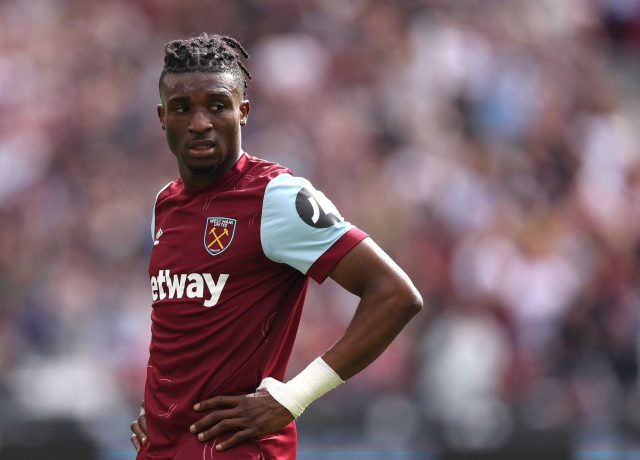On Wednesday, West Ham United parted ways with manager Julen Lopetegui after a series of underwhelming performances, which culminated with a 4-1 drubbing against Manchester City in the Premier League on Saturday.
However, the decision to dismiss Lopetegui could prove to profit Ghana star Kudus, who has struggled to find his feet under the Spaniard.
Prior to the start of the season, Lopetegui was appointed as manager of the Hammers in the stead of David Moyes.
The decision to appoint Lopetegui was well received by fans of the club, who generally saw the manager’s appointment as an exciting one—a significant shift from David Moyes’ dull dish served in his time as manager.
Moyes was largely seen as a pragmatic coach who struggled to get the best out of the players at his disposal, while Lopetegui was seen as a direct opposite to the Scot.
However, fans who quickly jumped on the Lopetegui bandwagon hang their heads in considerable shame now.
West Ham sit 14th in the league after 20 games, winning six, drawing five, and losing nine.
Their 17 points put them seven points clear of the drop zone.
How do the managerial changes affect Kudus?
Constant managerial changes definitely leave marks on teams.
For Kudus, the switch from Moyes to Lopetegui has been a backward step in his career.
Joining the Premier League from the Eredivisie, where he had scored 17 times in 65 games, Kudus had a seamless transition in his first season in East London.
In 33 league games, Kudus scored eight times, scoring five times in the Europa League as well.
Under Moyes, Kudus expressed himself considerably, often being deployed on the right-hand side of attack and cutting inside regularly.
But the midfielder had alternating roles playing for Lopetegui.
In nine league games, Kudus played as a left winger, popping up on the right wing three times while featuring twice on the left of midfield and once on the right.
The managerial switches largely affect his game due to the different deployment of the midfielder, in addition to his tactical mandates.
To Moyes, getting Kudus on the ball and close to the opponent’s goal is what best suits him, while Lopetegui was more concerned about what Kudus brings to the West Ham team as a whole.
What do analysts think?

Football journalist and writer for Londonworld, Rahman Osman, has been vocal about Mohammed Kudus throughout the season.
At the start of the season, he said on Tv3 Sports Station, “I’ll really like to see Kudus repeat what he did last season or even better.”
Things have been difficult for Kudus, who has three goals so far this term.
Regardless of the positional conundrum Kudus has found himself in, Rahman Osman believes the talent of the midfielder should see him rise above any gloomy situation.
“Playing on the right restricts him a bit, but Mo should be able to adapt to that. If you go up and climb up the ladder of success in football, you have to adjust your game.”
“But, come on, Kudus is so talented; he knows how to play football. It doesn’t matter which side of the pitch he is. He should be able to perform and perform well,” he added.
West Ham are expected to agree a deal with Graham Potter in the immediate future to take over from Lopetegui.
If things fall in place, Potter will be Kudus’ third manager in a little more than two years at West Ham, not ideal for the midfielder’s development.
How different will incoming Potter be for Kudus?

Graham Potter is widely being speculated to be the leading candidate to fill the vacant managerial role for the Hammers.
Potter is believed to have agreed a deal with West Ham to take up the role as head coach — a first managerial appointment since leaving Chelsea in April 2023.
But what does Graham Potter truly bring? How different will Potter handle Kudus?
One thing which has been a standout in Potter’s career, and one of the reasons why Chelsea approached Potter is his ability to develop players.
Potter has what it takes to improve players and take their game to the next level.
Ben White, Trossard and Moises Caicedo are some players who benefited from Potters’ development.
Another requirement for attacking players to suit the Porter model, as shown in his years at Brighton, is the ability to play in different positions.
Versatility, be it playing in midfield or attack, is a strength of Kudus.
Potter also demands his players to work their socks off, a characteristic Kudus embodies.
Kudus and Potter could be a match made in heaven, if the manager is able to hit the heights he showed at Brighton that made him so coveted – and if Kudus is able to turn on the style.
















